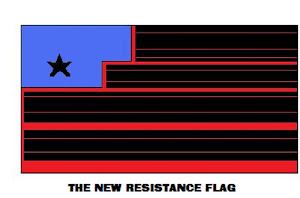Baquba, Iraq - At least five million Iraqis have fled their homes due to the violence under the U.S.-led occupation, but half of them are unable to leave the country, according to well-informed estimates.
According to the United Nations High Commissioner for Refugees (UNHCR), there are more than 4.4 million displaced Iraqis, an estimate that many workers among refugees find conservative.
The UNHCR announced last week that at present 2,000 Iraqis are fleeing their homes every day. Most of them have received direct threats from death squads or militias.
The provinces that have suffered the greatest displacement are the largely Sunni Baghdad, Diyala, al-Anbar and Salahadeen in central Iraq.
Members of many families who have not fled told IPS they have stayed on because they had no choice.
"We could not leave our city despite the security situation because we don't have the money to travel and live outside Iraq," Ali Muhsin, an official with the directorate general of education and a father of five told IPS in Baquba, 40 km northeast of Baghdad.
"For more than a year, we used to receive the salary only every 50 or 60 days because the militants had taken over the entire city. They even controlled the banks, which prevented our offices from receiving the money."
Muhsin said most workers in the education system in Diyala province (north of Baghdad where Baquba is located) are not fully employed, and are therefore not paid salaries. And the rampant violence has prevented people going to work.
"People can hardly afford to live in Iraq, so how could they afford the expense of travelling and living abroad," Najmeldeen Alwan, a local grocer near Baquba told IPS. His wife Suhir, standing by his side, said, "We just wait for our destiny."
Local Iraqis say most people who fled had the means, or the ability to acquire the means.
"Seventy percent of those who fled are rich, and the rest had various resources," Abaid Nasir, an unemployed trader in Baquba told IPS. "Some sold their properties, others used up their savings to save the lives of their family."
But it is not money alone that decides whether a family stays or goes.
"My family live in a small village which has managed to defend itself from criminals and gangs," Ta'ama Aed told IPS. "Our people protect it against the militants. The only thing the militants can do is bomb it with mortars."
Aed lives in a small village on the outskirts of Baquba. But the need for safety meant that "inhabitants do not leave the village," he said.
Other families have made deals with militias and resistance groups for their protection.
"A large number of people have sided with the militants for their safety," local resident Mohammed Jabur told IPS. "In such cases, one of the militants guarantees the family that nobody will hurt them, and they usually keep their word."
There are no formal, government sponsored refugee camps in Iraq. Makeshift camps are common throughout the country, but they are fluid, and security in them is poor.
One reason keeping many Iraqis back now is the lack of security on highways. Most people IPS interviewed said they avoided travelling more than two or three kilometres from their villages, towns, or cities.
"I wanted to leave Iraq, but I could not because the militants control the highways and all the roads from the city," Ahmed Salih from Baquba city told IPS. "All the way to the borders, militias and fighters control the roads."
On Oct. 1 Syria decided to close its borders to Iraqis, except for traders and academics. The move has left thousands of family members separated from one another.
Roughly 10 percent of Syria's population is now Iraqis, and the government has said it cannot absorb more refugees.
The U.S. itself is least affected by the refugee crisis. Since the invasion of Iraq in March 2003, the U.S. administration has issued less than 2,000 visas to Iraqis.
"Since October 2006 the U.S. government has gone from denying that large numbers of vulnerable Iraqi refugees even existed, to speaking openly of an Iraqi refugee crisis," the group Refugees International said in a statement. "But its actual financial commitments are commensurate neither with the need nor with the U.S. role in creating the displacement crisis in the first place. The President and his war cabinet have yet to recognise the human toll the violence has been taking on Iraqi civilians and neighbouring countries."



No comments:
Post a Comment